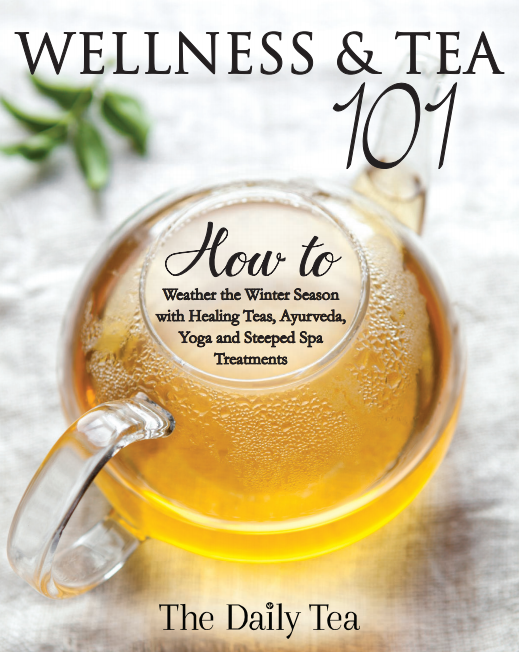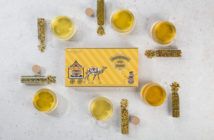Tea is delicious, comforting and loaded with health benefits, but many expectant moms wonder about drinking tea during pregnancy. Which teas are safe? What teas should be avoided? While most are safe and even beneficial, knowing the “What, When and How’s” of tea will help you make good choices.
The Basics- Teas vs. Tisanes
To make healthy choices about drinking tea during pregnancy, it’s important to know the difference between teas and tisanes:
- Tea is made from the leaves of Camellia sinensis- including black, green, white, yellow, oolong and pu-ehr. All teas contain varying amounts of healthful caffeine, antioxidants and polyphenols
- Tisanes (also known as Herbal teas) are made from the roots, seeds, flowers, leaves and berries of various plants. Herbals contain very little caffeine (if any) and often have medicinal qualities. Commercially-produced “pregnancy teas” are made with herbal ingredients.
Click the image (on the left) to download our Wellness & Tea 101 E-Book for free. Learn How To Cultivate Nourishing Tea Traditions With Children in a featured story.
Is it Okay to Drink Regular Tea?
- Tea has great overall health benefits, but expectant moms should limit caffeine intake to 200 mg of caffeine per day.
- The average cup of tea contains about 40-50 milligrams of caffeine
- Decaffeinated tea contains only about .4 milligrams.
- Always consult with your health care provider about what is safe for you; every woman and every pregnancy is unique
Is it Okay to drink Tisanes (Herbal Teas)?
- Herbal teas are naturally caffeine free, and many are used to promote wellness and ease the minor discomforts of pregnancy
- Some herbs are decidedly unsafe to drink during pregnancy. Never consume teas containing black cohosh, blue cohosh, or dong quai. In addition, pregnant women should avoid all diet, PMS, cleansing and detox teas. When in doubt, check with your health care provider.
- Most commercially-produced pregnancy teas are safe to drink. Choose herbal teas from reputable companies that follow FDA guidelines.
- Always consult with your health care provider about what is safe for you; every woman and every pregnancy is unique
Common Herbs used in Pregnancy Teas
- Red Raspberry Leaf- A rich source of iron and promotes uterine health. Some believe red raspberry tones the uterine muscle, making contractions more efficient. This tea is recommended for second and third trimesters only.
- Peppermint Leaf- Helps relieve nausea and morning sickness
- Lemon Balm- Produces a calming effect and helps to relieve irritability, sleeplessness and anxiety
- Ginger root –Helps relieve nausea
- Dandelion- Eases fluid retention. Rich in potassium, calcium and iron.
- Chamomile- High in calcium and magnesium, helps insomnia and inflammation of joints
- Nettles (Stinging Nettles)- High in vitamins A, C, K, calcium, potassium and iron. Nettles are one of the most widely used herbals for pregnancy teas. But make sure the nettle tea you drink is made from the dried leaf, not the root. And since nettles stimulate the uterus, this tea should be avoided during the first trimester.
Read more about tea consumption during pregnancy.
note that this piece was originally published in march 2015





